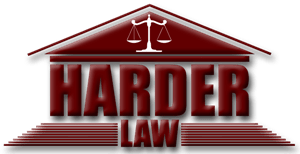There was a changein October 2015 affecting private property rights. The Bert Harris Act, passed in 1995, provided a means for citizens to seek compensation from the government when regulations burdened their property rights.
5th Amendment
The Fifth Amendment to the U.S. Constitution states, “nor shall private property be taken for public use, without just compensation.” The government can take property two ways. First, eminent domain is where the government takes possession of the property for public use (such as removing houses for road expansions). Second, regulations can diminish the value of the property (such as declaring a larger offset from the beach thereby forbidding owners of beachfront property from full use of their water front property).
Sovereign Immunity
In an action against the government, the government must first give its permission to be sued. This concept of sovereign immunity dates back hundreds of years whereby ordinary citizens were not allowed to sue the king (or queen). This doctrine has been continued to protect the government from needless legal actions. The Bert Harris Act waives government immunity.
Essential Nexus
When a claim is filed against the government under the Bert Harris Act, it is the government that has the burden of proving two things. First, that the exaction (payment of a fee) has an essential nexus to a legitimate public purpose. Second, the exaction is roughly proportionate to the impacts of the proposed use the government seeks. That phrase “roughly proportionate” is going to be the playing field for attorneys. It will be the courts that will take those fuzzy boundaries and give it definition.
Bert Harris Act Changes in 2015
There was a difference of opinion between the 1st DCA and the 2nd DCA on the interpretation of the Bert Harris Act. Did the Act intend to just include property that was directly affected, or could it also include neighboring property. The 2015 Legislation resolved that question by amending the definition of “property owner” to be the legal title holder to the real property “that is the subject of and directly impacted by the action of a governmental entity.” The definition of “real property” was clarified to include “only parcels that are the subject of and directly impacted by the action of a governmental entity.” This amendment eliminated those that are impacted because of their proximity to the directly affected property.
Conclusion
The Bert Harris Act is limited to the property owners that are directly affected by government exaction. Adjacent parcel owners can no longer use the Act to claim for damages. Adjacent parcel owners will need to use other mechanisms, such as nuisance claims, to recover for their damages. The Act also provides for settlement of the claim without the need to file an actual lawsuit. Also, the Act provides for attorney’s fees and costs to the prevailing party. The entire Act may be found in Title VI, Chapter 70, “Relief from Burdens on Real Property Rights.”
